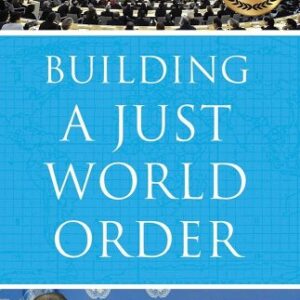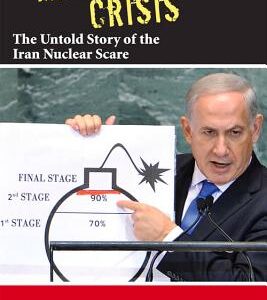Building a Just World Order by Alfred De Zayas
A democratic and equitable international order is possible. Humanity needs this enforceable rules-based order for sustainable development and the welfare of future generations. While inter-governmental organizations like the International Labour Office and the Food and Agriculture Organization have advanced the vision of a just world order and helped fulfil the purposes and principles of the United Nations Charter — promoting peace, development and human rights — the efforts of the international community have fallen short. In 2011, the UN Human Rights Council created the mandate of the Independent Expert on the Promotion of a Democratic and Equitable International Order.
This book compiles 14 reports, info notes and comments of Dr. Alfred de Zayas, the first mandate-holder (2012-2018). It formulates 25 principles of international order, defines domestic and international democracy, the right of self-determination of peoples, and a human right to peace. He proposes concrete reforms of the UN system, notably the Security Council andthe functions of the Secretary General, and advocates reversing the adverse impacts of World Bank and International Monetary Fund policies, slashing military expenditures, rendering free-trade agreements compatible with human rights, abolishing tax havens and investor-state-dispute arbitrations, alleviating the foreign debt crisis, criminalizing war-profiteers and pandemic vultures. Zayas denounces unilateral coercive measures, economic sanctions and financial blockades, because they demonstrably have caused hundreds of thousands of deaths — crimes against humanity under article 7 of the Statute of Rome of the International Criminal Court.
Zayas addresses the right to reliable information, freedom of expression, censorship by governments and private media, proposes a Charter of Rights of Whistleblowers, repudiates the anti-democratic “cancel culture” and demands accountability for crimes against indigenous peoples, ecocide, “extraordinary renditions” and torture in Guantanamo. He formulates pragmatic recommendations to States, international organizations and civil society.
In 2017 before the General Assembly Zayas deplored the implementation gap that renders the UN rapporteurs “an assembly of Cassandras”, calling for renewed commitment to ethical politics and the spirituality of the Universal Declaration of Human Rights, garnering unprecedented applause from UNGA delegates and NGOs.
Hope, But Demand Justice by Pat Hynes
Pat Hynes’s understanding of the wide range of issues covered in HOPE, BUT DEMAND JUSTICE is guided not only by her scientific expertise and training as a researcher but also, and very importantly, by compassionate intelligence. Her empathic intelligence shines through whether the subject she writes about concerns the plight of violence-and poverty-battered families fleeing across national borders (including ours) or the unbelievably wasteful and extravagant use by the US government of its citizens’ tax dollars for weapons and war or the plight of fire-ravaged forests and communities due to runaway global warming or the deep physical and psychological/moral scars suffered by military veterans of the US and other countries or the fate of women and girls everywhere who, she makes clear, always bear the heaviest brunt of poverty, violence, food scarcity, and sexual exploitation.



